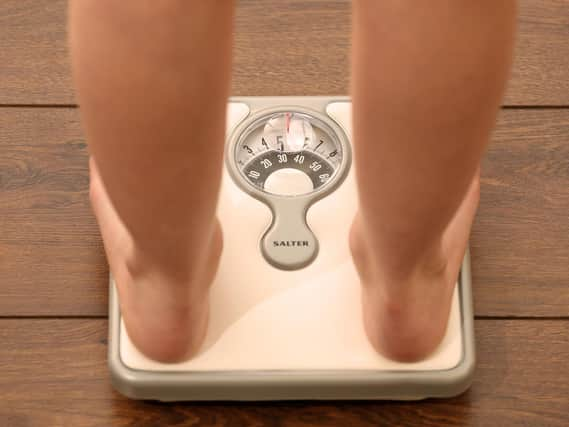Fears for children with eating disorders in Lancashire as dozens wait too long for treatment


Mental health charity YoungMinds warned the consequences of leaving young people in limbo can be "potentially devastating".
Guidelines say patients should begin treatment within four weeks of referral in 2020-21, or within one week for urgent cases.
Advertisement
Hide AdAdvertisement
Hide AdNHS England data shows at Lancashire Care NHS Trust, 98 per cent of children and under 19s were seen within four weeks between July 2019 and June this year – meaning five waited longer for treatment.
This exceeds the 95 per cent target set for all NHS trusts and other healthcare providers.
But waiting times for urgent cases lag behind the target – of 26 urgent cases processed over the period, only 21 (81 per cent) were seen within one week.
The target referral window follows extra investment aimed at improving eating disorder services across the country.
Advertisement
Hide AdAdvertisement
Hide AdBetween April and June, the first three months of 2020-21, 87 per cent of young patients across England were seen within four weeks for routine cases, and 88 per cent within one week for urgent cases.
This meant the NHS fell below both targets, although performance was up from 83 per cent and 78 per cent respectively a year earlier.
Eating disorder charity Beat welcomed the improvement, but said more progress is needed to help services achieve the new standard.
Tom Madders, director of campaigns at YoungMinds, said it is "encouraging" that many young people were able to access eating disorder treatment during lockdown.
Advertisement
Hide AdAdvertisement
Hide Ad"However, there is real variation across the country, with some areas already meeting the waiting times standard and others falling behind," he added.
"This means that some children and young people will be waiting a lot longer, with potentially devastating consequences.
"As we move into the next stage of the pandemic, it’s important for children and young people to have access to the right information and support.”
The National Obesity Forum recently called for children to be weighed at school to check they have "lost lockdown weight", sparking backlash when it became a topic of discussion during an episode of the Jeremy Vine Show.
Advertisement
Hide AdAdvertisement
Hide AdActress and campaigner Jameela Jamil said being weighed at school triggered her eating disorder at age 12, and that schools should focus on teaching children about nutrition.
Beat's Rebecca Willgress said: "Children are more likely to develop eating disorders if they are prone to anxiety or worried about their weight.
"Our report into the impact of anti-obesity measures concluded that weighing children in schools does little or nothing in its aim of reducing obesity at a population level, however it does pose a significant risk to those vulnerable to eating disorders."
Overall, more youngsters with eating disorders are now starting treatment in England than a year ago.
Advertisement
Hide AdAdvertisement
Hide AdIn the year to June, 7,840 patients started treatment – up from 7,621 over the previous 12 months.
The Lancashire Care Trust, by comparison, saw cases fall during this time, from 277 to 265.
An NHS spokesman said: “Record numbers of children and young people are being treated for eating disorders, waiting times are improving significantly and it is thanks to the hard work of staff that despite the pandemic, the NHS supported more children and young people to get the care they need within four weeks compared to the same period last year.”